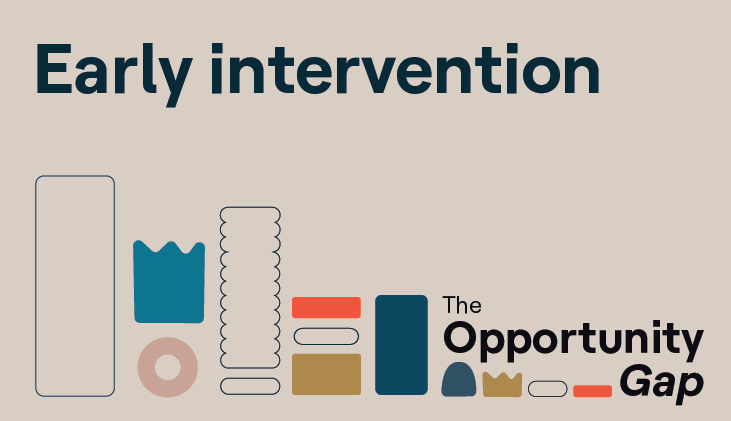Stay in the know
All our latest podcasts delivered right to your inbox.
Thousands of kids of color from marginalized communities enter kindergarten behind. One cause: Families often don’t know that there’s free help for babies and toddlers with developmental delays.
In this episode, co-host Marissa Wallace opens up about her biracial son who had language delays as a toddler. Even though Marissa is a teacher, she didn’t know exactly what to do. That’s when her doctor recommended free early intervention services. To make sure other families don’t miss out, Marissa and co-host Julian Saavedra raise awareness about early childhood intervention services. They also talk about barriers that kids in low-income areas face. And they share tips on how families can seek out early intervention.
Reports mentioned in this episode
Our Youngest Learners: Increasing Equity in Early Intervention, by The Education Trust
Early Inequities: How Underfunding Early Intervention Leaves Low-Income Children of Color Behind, by Citizens’ Committee for Children of New York
Related resources
Episode transcript
Julian: Welcome to "The Opportunity Gap," a podcast for families of kids of color who learn and think differently. We explore issues of privilege, race, and identity. And our goal is to help you advocate for your child. I'm Julian Saavedra.
Marissa: And I'm Marissa Wallace. Julian and I worked together for years as teachers in a public charter school in Philadelphia, where we saw opportunity gaps firsthand.
Julian: And we're both parents of kids of color. So this is personal to us.
Marissa, what's up? How're you doing today?
Marissa: I'm doing well, Julian. How are you?
Julian: Excited to jump into what we're going to talk about.
Marissa: Yeah, I think this kind of came up in a conversation that we had recently. And I think it's an important topic because it's the beginning part of our children's educational experience. I'm looking forward to having an honest conversation about early intervention, what that means, and then just talking about some potential shortcomings of the program, some areas in which it's not doing what it's meant for, which is supporting children from birth until they're school age, is that what happens before they go into school. I'm looking forward to having this conversation.
Julian: I think today's really important to bring about something that doesn't really get talked about a lot, the idea of early intervention specifically for, you know, our babies, our toddlers, before students are going into school. And how there's such a disparity between the experiences of our white students and our Black and brown students. You know, I remember when our son was a couple of weeks old and my wife had made sure that we had all the books. We had the American Academy of Pediatrics book, and we had "What not to" — or "What to Expect When You're Expecting."
And I remember in the books, a lot of them had month-by-month explanations of specific things that should be happening for developmental milestones for children as they reached different markers in their lives, when they should start to make sounds, or when they should be able to hold themselves upright by themselves, or when they should start crawling, or when they should start recognizing words. And a lot of those things are really based on physical milestones, those language milestones, and obviously the social and emotional milestones. That's really where we're looking at, where are the early intervention programming come into play? Like, where are those things that we need to pay attention to? A lot of times people are very stuck on what those books are telling them, that, uh-oh, my kid didn't crawl as soon as your kid did.
Marissa: You're right. We're constantly thinking about, are they hitting the milestones? You, we're having conversations, we're seeing other parents with their children and we're, like, making that comparison. So what early intervention is, it's services and supports that really are in place to help young children who are experiencing developmental delays. And so those developmental delays can be small to large.
Like, I know that it's, often what happens is when there is a notice of, whether it's a language or a physical milestone or something, social, emotional, where it's a child is performing not where they're supposed to be or below average in those areas, oftentimes, their pediatrician would have that conversation with the family and then recommend going through an evaluation process. So we're going to hear and talk about some terms that are similar in the early intervention process to what we've talked about on the show, as far as the evaluation process at this school-age level.
But so it's important to understand and differentiate between an early intervention program and a school-age program for special education because they are different. I will say, though, this is a step that's overlooked often but so incredibly and critically important to a child's development and to what their school life is going to be like. Because if you start this process early, it really has an amazing way of providing students with those services before they become a student.
Julian: I think a lot of our listeners probably have children that are older than this age range, maybe not. But if you have people in your lives that have younger children, or if you know or interact with people who have toddlers or babies at some point, I completely empathize with the anxiety that comes along with parenting a newborn, parenting a baby, parenting a toddler, especially if it's your first one. There's a lot of things that go along with it. A lot of feelings that come with it, and it's a nerve-racking experience to begin with. It's a beautiful thing, definitely, but it's also really hard, and you're getting advice and information from all places. From your friends, from your mother-in-law, and or your mom, or your dad, or your aunt, or your grandma, or the neighbor across the street, social media, all the pictures of Facebook telling you this, that, and the third. If you're in those spaces and you're somebody that might be wondering or worrying about your child, are they hitting these milestones? Should parents just wait for them to hit the milestones? Should they, like, when should they start to take action?
Marissa: Right. And so I'm so glad you bring that up, because I can, like, vividly remember, like, our process. So I think the first piece of it is, right, is, like, making sure, especially in those very beginning months, weeks, and years of your child's life, making sure that they are going to their regular checkups with their pediatrician, because that's, for us, where this kind of unraveled and where we got the information. Because even as an educator, I honestly did not know anything about early intervention until I became a parent. I had heard about early intervention, but I didn't personally interact with it until my son. Two things, right, there's, like, a knowledge gap that we have, and then there is an access. We have to also talk about sometimes the access to these services are not easily accessible for all families.
So for us, like I, because I was an educator, I had some thoughts, and some, again, also falling into the comparison trap. I was like, ooh, Lincoln's not communicating verbally as much as I believe he should for his age. It was his 18-month appointment that we were going for his check-in with his pediatrician.
And so if you're a parent out there, or a guardian, and you've ever taken a kiddo at that age, you may or may not remember there, they ask you all these questions before you even get seen by a doctor, there's just this list of questions about their development. So all the things that, you know, Julian and I brought up — the physical milestones, language milestones, social and emotional — they start asking those questions.
And so, for us, it was one, I encourage everyone to answer those questions and those surveys honestly. The part that stuck out to our pediatrician was his limited words. So he didn't have a whole lot of words at 18 months. And so, of course, that led to some behaviors, right? Because he's not able to verbally tell us or ask us. And so therefore there was crying and tantrum-ing and some other actions and behaviors that were happening because of his limited vocabulary at that time.
There wasn't like a huge concern. However, our pediatrician was on it and was like, "Here's my suggestion. Let me give you the contact and the information to follow up with early intervention services. Give them a call and set something up."
And so that was, like, our beginning. Again, step one, OK? So now it's, I could have done one of two things: I could have ignored it. I could have been, like, he's fine, he'll grow out of it. Or I could have just been a busy mom and not ever followed up. But thankfully we made the call, we got an appointment to have him evaluated. And the great thing, and something now I know it's pandemic time so life is very different, but at that time, they came to our house. So it was a really easy process. Yeah. They came right to our house and did the evaluation at our house, and were pretty communicative with getting us information and letting us know that he did qualify. He qualified for speech services.
Julian: I know that's probably really hard, like, at that point where you're evaluating your 18-month-old son. Did that cause any feelings?
Marissa: It did, and I'm the kind of person, like, I want the information, you know what I'm saying? So I was more relieved that someone was going to give me information so that I knew what to do next, and that I knew that my child could get the support, because that's really what early intervention is, is identifying a delay. Whether that delay is, in this case, it was a language delay, whether it's a physical delay, social-emotionally, whatever that delay is, they identify it. And then the really amazing thing is they believe in incorporating the families into providing the support. So once we knew what his delay was in, it turned into really hands-on therapy, where now I was working at the time and Mario was home, so it was more, like, teaching the parent how to interact and how to build these language skills together, which was really cool.
Julian: So let's bring out a couple of things with what you said. First, thank you for sharing your experience so far. And we're obviously a little different than all parents out there because we both are educators too. So how we take these things is going to be a little bit different because it's been part of our career. But I'm thinking about all the parents that are not in education. I'm thinking of all the parents that are potentially experiencing this, and they might not have the immediate wherewithal to know, "Oh, maybe something's going on. Maybe I need to speak up to my pediatrician." Maybe — the whole point of this show particularly is focusing on the gap in opportunities for our people of color versus those that are not. The statistics are wild. That's also something that, that, again, we don't really talk about this side of things, but listen to this: For families of color, access is far more limited.
So this statistic comes from the Education Trust: "The probability of a child being identified as having a developmental delay and using early intervention services is drastically different depending on their race and ethnicity, comparing this to their white peers with developmental delays. Black and Latino children with developmental delays are 78 percent less likely to have their need for early intervention services identified. Black children, specifically, with developmental delays are 78 percent less likely to receive early intervention services."
This report will be found in our show notes. And honestly, I didn't even know that. Like, until we started to really dig into this, I had no idea that there was such a drastic gap between the identification but also the actual reception of the services that are out there.
And, Marissa, tell them, what are early intervention services in terms of costs?
Marissa: Certain early intervention services are free in all states, so, again, I said —
Julian: Say that again?
Marissa: Certain early intervention services are free in all states.
Julian: Free! Free!
Marissa: We were really fortunate because every single service that our kiddo had was completely paid and taken care of.
So it does, just to further that, you may be charged on a sliding scale or through your insurance for early intervention services that are not free. So there are, again, there's different classifications, there's different levels of services? I can't speak for every child and every family. However, for the most part and at least the initial piece, right? The initial piece of getting into early intervention, that part and finding out what your child needs is going to be free. So you cannot be denied services, though, if you can't afford to pay for them. So that's important for families to know, too, that even if there is a cost attached to it, you cannot be denied for that service.
So it is, so again, just similar to when we've talked about the special education piece, there are things in place to protect and to ensure that children are receiving the support that they need, because, I promise you, early intervention is so critical in your child's development. And it is a game-changer for when they transition to school age.
So it has so many benefits. However, right now, I think our conversation based on these statistics is what the heck is the barriers? That's really concerning to hear that such a large percentage less are receiving such important services. What's the why behind it?
Julian: Well, yeah, I mean, I was shocked, you know, I knew about early intervention from, again, from my educational background. I knew what it was, and then our pediatrician was amazing. So she always told us, like, what to expect coming up. And she was way more well informed than the books, so I felt comfortable with her. But I know that that's not the same experience for everybody. I think that we were able to procure a really solid pediatrician that could devote lots of time to us because we were going to a hospital in a wealthier neighborhood. And we were privileged enough to have that. And I think one of the largest barriers is always going to be around income. And we know that income and systemic racism are tied together. And for many of our Black and brown students, and pre-students, children who are not even in school yet, those that are in low-income neighborhoods don't have access to adequate health care.
They also, because they don't have this access to adequate health care, they don't have the same pediatrician experience that those of means have. So instead of having a 25- or 30-minute appointment with a pediatrician where you can ask lots of questions, where you can have this working relationship, where you can email back and forth or text message to call, you might have a situation where you're going into a clinic and the appointment is five minutes. It's a really quick, "Let me check off the list. Let me weigh the child. Let me make sure there's nothing wrong. All right, let's go on to the next person." So the relationship isn't even developed to a point where you feel comfortable as a parent with bringing up some of the worries that you might have. So I think one of those big barriers is in low-income communities, specifically the lack of health care, the lack of adequate pediatric services, and the lack of access to a working relationship is really something that holds people back.
Marissa: And it's concerning because it actually made me think about if a parent that I was talking to, this was years ago, and similar to us, like, the parent came from a place of understanding and some privilege and knowledge of what their child deserved. However, they had to take their knowledge and actually, like, step up to the pediatrician and was like, "Hey, I know there's these services out there. Can you tell me about them?" because it didn't come up in a conversation.
But now I'm also wondering and concerned with how much we know that our health care system is so overwhelmed. Now I'm thinking, what does that look like now? So in these places where they're overwhelmed, and in these places where they're not taking the time to really talk to families or have these well visits even, right? Think of how much is missing with being able to identify any developmental delays and then provide any next steps for access to early intervention. Because if a parent like ourselves, or like this parent that I know didn't have the know-how or the knowledge to have the conversation, you would go to these appointments and if the conversation didn't happen, you wouldn't even think twice. Do you know what I mean? You would have walked out. Like, if, if you didn't, if it never came up, you could have totally missed the opportunity.
Julian: Yeah, and that's, that's something I don't think would just be restricted to the cities. I imagine that if we dug deeper, this is across rural communities, this is probably across any communities where there's just a lack of sufficient health care. I mean, we hear about health care in the news a lot, and a lot of times we talk about health care in relation to older people or, you know, folks that are not getting health care for existing conditions, but we don't really talk about the beginning of someone's life.
Marissa: Right. And this is the preventive, right? The preventive piece.
Julian: Exactly. And this is a very, like, extremely preventive measure that, in many cases, if some of these developmental delays were brought up early on, then it could potentially prevent further down the line, issues that happen in school. You know, because a lot of times we see that our students of color are coming to school behind their white and wealthier peers due to all of the things that are happening related to systemic racism, but also due to the fact that potentially they're not getting intervened with all of the potential things that could be solved or addressed like you had with Lincoln.
Marissa: And we were fortunate, because like I said, it was me, it was every piece of the process. It was me having my own assumptions. It was me taking the time. I hate doing surveys. Like, just real talk. Like, when I sit down, and I vividly remember sitting at that appointment and I'm like, oh, it was like 30 questions. And I'm just like, oh, I really just want to click anything right now. I just want to be done with this survey. I'm thankful that I obviously allowed myself to be honest because then it triggered the next conversation, which was, "OK, here's the next step." And then again, I had a choice. I left the doctor's office with this information. I could have just ignored it and not made the call, but then I made the call, got the services.
And so just for everyone out there who's listening, understand that there's such a wide variety of services they provide too. So it's anything from, like, in our case where we had the speech therapist coming to the home and working alongside my husband to work with Lincoln, to having, if your child is at a daycare, they will have services where they will go with the child to the daycare and provide the services there.
I had a family who had a child who, they had some behavioral developmental delays, and they actually had an assistant who was with the child in the daycare multiple times throughout the week. So it is a variety of things that are really involved in early intervention. And the cool thing, too, is just like if they were school age, there's progress monitoring. So there's checks that happen. And there's, I still have, I have saved to this day, notes, tons of notes. Every time our person would come, they would document everything that happened, and they would give it to us. A copy for them, a copy for us. So I have this whole, like, year of Lincoln's life documented on the progress he made.
So I hope even though there's barriers, my goal is to have everyone who's listening understand the benefits and know that, just like we said in that blurb about the fact that they are free services and that you cannot be denied for services. So hopefully that's sparking in families who might be concerned about their young ones to have these conversations with a pediatrician or a trusted friend or someone who can connect them in their community to these services, because that connection piece is key.
Julian: It is, and I think on the flip side, even the impact is also felt in underfunding the early intervention programs that are available in low-income areas. There's the pediatric side and the health care side, but then the other side of it is the actual intervention program. So say, by chance, the families procure some sort of programming and they finally get early intervention services. What we're finding across the country, many of our programs that are available are not getting funded properly.
For example, in the Bronx and Manhattan, in 2019, there was a social service agency called University Settlement, and they employed early intervention therapists that spoke 11 different languages, providing services to over 350 kids. This program was closed in 2019. Over the 10 years, other programs like that closed all across the city of New York. A lot of these evaluations that are happening were by therapists who would have to travel a lot farther from their homes in the suburbs or their homes away from the low-income areas, and so they couldn't service as many kids in one day as if they were in the suburban areas. So if I'm a therapist, and I'm a mobile therapist, and I'm located in one of the suburbs, but I need to do all of my programming in the city and I'm not located or my office is not in the city, the amount of families that I can see in any given day is vastly smaller than the amount of families that I might be able to see if I'm closer to where I service the kids. So that barrier in and of itself impacts the amount of people who are seen. How is that even remotely close to being OK?
Marissa: But it's because, just like the shortage in the teaching world, right? There's shortages in this area as well, and that's a huge issue. And we have consistently as a country sit there and pump funding into the, to reactionary services as opposed to prevention, like that's been like an ongoing thing. Like these preventative services that would be, would help so that there wouldn't need to be all of these reactionary services, where we've always been backwards with that. Because I'm sure we were super fortunate, but I know our story is not, clearly, is not what everyone's experiencing. And I do think you bring up a great point is there's just not enough funding to cover those that are doing this work. And that's why there's probably not people out there doing the evaluations, because the ones that are probably overworked and underpaid.
Julian: How do we start to actually make some movement on making some of this happen in low-income areas in Black and brown communities? Because 78 percent is unacceptable.
Marissa: And I, and I'm hoping that our first step today was just the awareness, right? Like I just think that there is, as I mentioned, like I, as an educator, did not really understand or know enough about early intervention until I was a parent.
So there is clearly just knowledge gaps. So I hope that our first thing that we've done for our listeners is provided awareness. I think the second thing is providing facts, right? We don't sugarcoat it for our listeners. We are honest, and we tell the truth. And so now that you have the facts, like, knowledge, though, is power, so now that you have the facts and you know that there are services that are free, and you know that you are not, should not be denied those services if you can't afford them, it is now about having, finding those people to have those conversations with. Whether it's your pediatrician, whether it's someone within your own circle or your community that can get you connected to make sure that your child has what they need.
Because I will tell you this, like, the success story that I've experienced. Lincoln did an entire year of early intervention services. And then when he was 2½, he tested out. And we went from being concerned that he was going to need to continue to have early intervention, and most likely we were, like, preparing for him to get identified as a child with a speech or language impairment, that would have then carried and transitioned over to school age. And he would have then needed special education, which we were fine with. We really were. We had accepted that was potentially his journey. However, in one year, the progress that my kid made — give so much credit to Ms. Tanya and to the other people that worked with Lincolna. And it was truly a team effort, and I believe because of them and because of those services, he was able to transition out and not need school-age services.
Julian: So it's just another one of those things that goes not said. But we don't talk about it, and it just, other people are benefiting from it, but it's designed to benefit everybody. All children should be experiencing a situation where they get what they need. And if there's a position where we can potentially intervene before students go to school so that they are prepared and ready to walk into a school building and ready to learn, then we need to make sure that it's happening. Share that early intervention is a right. It is not a privilege. It is a thing designed to help everybody. Make sure that you're opening up conversation and ask those questions. And, Marissa, thank you so much for sharing your story and sharing the success story because it works.
Marissa: Right.
Julian: It works.
Marissa: And that's right. And I want there to be more stories like that. I'm hoping that we achieve — that's the goal is by making this an awareness, by working towards equity for every child. Lincoln is a unique kid, so I'm just glad he received what he did receive. We were very fortunate.
Julian: For more information, please check out show notes for all of our resources that we mentioned today.
This has been "The Opportunity Gap," a part of the Understood Podcast Network. You can listen and subscribe to "The Opportunity Gap" on Apple, Spotify, or wherever you get your podcasts.
Marissa: If you found what you heard today valuable, please share the podcast. "The Opportunity Gap" is for you. We want to hear your voice.
Go to u.org/opportunitygap to find resources from every episode. That's the letter U as in understood, dot O R G, slash opportunity gap.
Julian: Do you have something you'd like to say about the issues we discussed on this podcast? Email us at opportunitygap@understood.org. We'd love to share and react to your thoughts about "The Opportunity Gap."
Marissa: As a nonprofit and social impact organization, Understood relies on the help of listeners like you to create podcasts like this one to reach and support more people in more places.
We have an ambitious mission to shape the world for difference. And we welcome you to join us in achieving our goals. Learn more at understood.org/mission. "The Opportunity Gap" is produced by Andrew Lee, Cinthia Pimentel, and Justin D. Wright, who also wrote our theme song. Laura Key is our editorial director at Understood.
Scott Cocchiere is our creative director. Seth Melnick and Briana Berry are our production directors.
Julian: Thanks again for listening.
Host
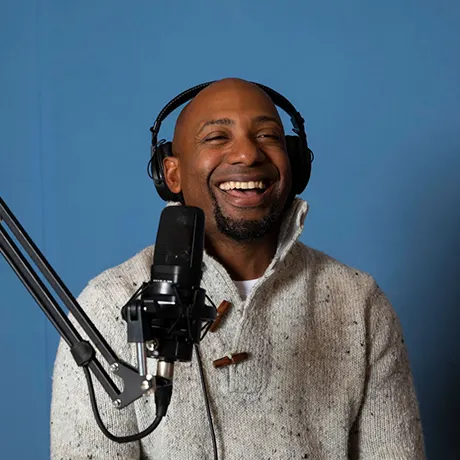
Julian Saavedra, MA
is a school administrator who has spent 15 years teaching in urban settings, focusing on social-emotional awareness, cultural and ethnic diversity, and experiential learning.
Latest episodes
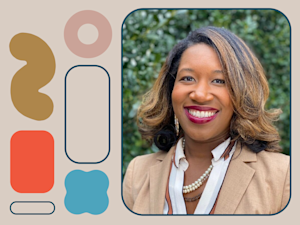
April 10, 2024
Myths and misinformation about ADHD and learning differences show up all the time on social media. Find out what’s fact and what’s fiction, and learn about the impact of these myths on kids of color.
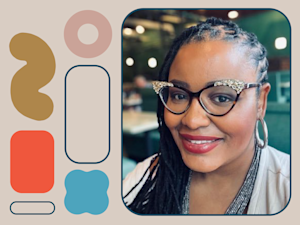
March 27, 2024
ADHD advocate René Brooks was diagnosed with ADHD twice as a child. But it wasn’t until she was diagnosed again as an adult that she finally got support. Listen to her story.
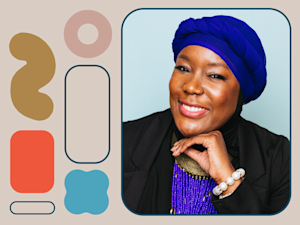
March 13, 2024
Learn about the steps to getting an IEP and starting your child’s special education program. Get tips from an expert.

February 14, 2024
Learn how four members of the Understood team are making an impact in the lives of people with learning and thinking differences.
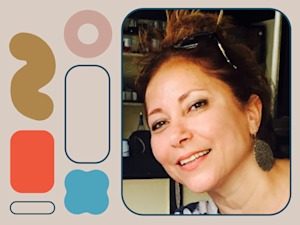
January 31, 2024
How can high-schoolers and their families prepare for life after high school? Get advice and tips from a college advisor.

January 17, 2024
Some kids don’t like to share information about their school day. Get tips on how to get them to open up and share. These tips and conversation starters can help your child to open up.
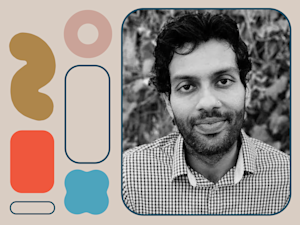
January 3, 2024
The school-to-prison pipeline has disrupted education for kids of color for a long time. Learn what the pipeline is and why it’s critical to end it.

December 6, 2023
Telling your relatives about your child’s challenges can be difficult. Get tips on how to make the talk easier to manage.

November 8, 2023
For some students of color, feeling mistreated by teachers is a common experience — and it shouldn’t be. Learn how to help kids self-advocate.

October 25, 2023
Dyslexia is a common learning difference that impacts many kids of color. Hear from an expert and learn ways to support kids in the classroom.
